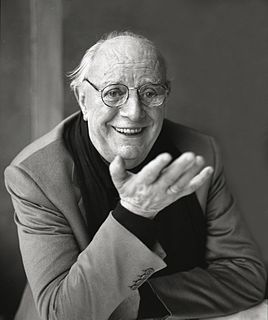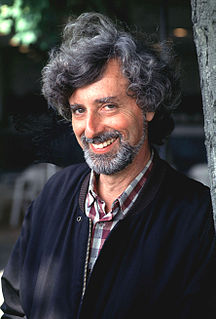A Quote by Dario Fo
A theatre, a literature, an artistic expression that does not speak for its own time has no relevance.
Quote Topics
Related Quotes
I firmly believe in and support everyone's right to freedom of artistic expression. STEEL MAGNOLIAS is my artistic expression, and it is my right to say that its female characters be portrayed by women. The concept of a play set in a beauty parlor where men portray women is a terrific idea. If that is someone's artistic expression, I encourage them to write their own play as soon as possible.
Literature cannot develop between the categories "permitted"—"not permitted"—"this you can and that you can't." Literature that is not the air of its contemporary society, that dares not warn in time against threatening moral and social dangers, such literature does not deserve the name of literature; it is only a facade. Such literature loses the confidence of its own people, and its published works are used as waste paper instead of being read. -Letter to the Fourth National Congress of Soviet Writers
What an artist does, is fail. Any reading of the literature, (I mean the literature of artistic creation), however summary, will persuade you instantly that the paradigmatic artistic experience is that of failure. The actualization fails to meet, equal, the intuition. There is something "out there" which cannot be brought "here". This is standard. I don't mean bad artists, I mean good artists. There is no such thing as a "successful artist" (except, of course, in worldly terms).
Great drama, drama that may reach the alchemical level, must have dimension and its relevance will take care of itself. Writing about AIDS rather than the cocktail set, or possibly the fairy kingdom, will not guarantee importance. . . . The old comment that all periods of time are at an equal distance from eternity says much, and pondering on it will lead to alchemical theatre while relevance becomes old hat.
There are reviews that are clearly wrong. Dr. Johnson's famous Life of Savage, he's clearly wrong about the value of Savage. But it's one of the great works in English literature. You can learn more about the artistic expression and what the poet does and how to write about art from that than any number of guys who are terrible writers, who have no original ideas, but who say yes, "Hamlet" is a wonderful play. It's a meaningless statement.
I want to view my own efforts to write a novel as a function of my own artistic aspirations rather than a good career move. And I need to learn how to commit to characters for a longer time, to confront the limits of my own capacities for attention and compassion. That's what a writing career does, in the best instance: it allows you to keep after what you can't do.
We do literature a real disservice if we reduce it to knowledge or to use, to a problem to be solved. If literature solves problems, it does so by its own inexhaustibility, and by its ultimate refusal to be applied or used, even for moral good. This refusal, indeed, is literature's most moral act. At a time when meanings are manifold, disparate, and always changing, the rich possibility of interpretation--the happy resistance of the text to ever be fully known and mastered--is one of the most exhilarating products of human culture.






































